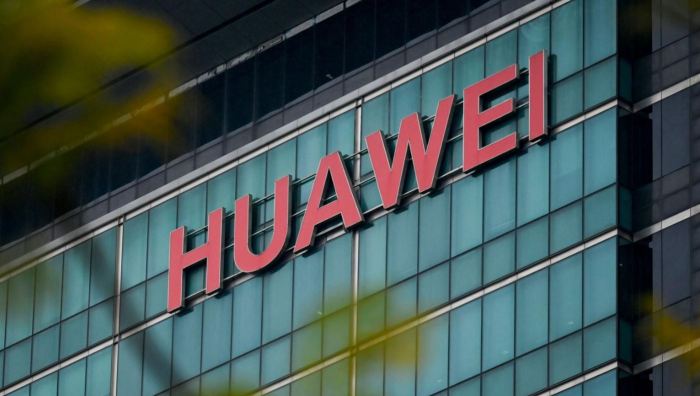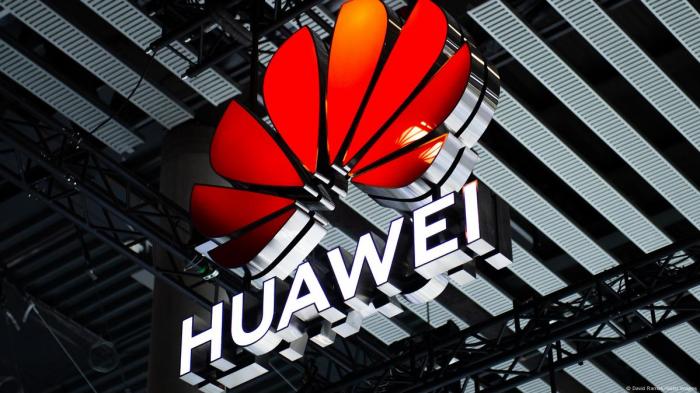Germany Use Huawei Equipment 5G Network: A high-stakes game of technological chess unfolds. Germany, a powerhouse in Europe, faced a tough decision: embrace Huawei’s cost-effective 5G technology or prioritize security concerns raised by allies like the US. This wasn’t just about faster internet; it was about national security, economic influence, and the complex dance of international relations. The stakes were – and remain – incredibly high.
This balancing act involved navigating the anxieties surrounding potential security vulnerabilities in Huawei’s equipment, weighing them against the economic benefits of using a leading technology provider. Major German telecom companies found themselves at the heart of the debate, wrestling with the cost-effectiveness of Huawei’s offerings against the potential risks. Meanwhile, geopolitical pressure from the US added another layer of complexity, forcing Germany to consider the broader implications of its choices on international relations and trade.
Germany’s Initial Concerns Regarding Huawei 5G Equipment: Germany Use Huawei Equipment 5g Network
Germany, like many other Western nations, initially harbored significant concerns about incorporating Huawei’s 5G technology into its national infrastructure. These anxieties stemmed primarily from geopolitical considerations and potential security vulnerabilities associated with the Chinese company’s equipment. The debate wasn’t simply about technological capability; it was deeply intertwined with national security and trust.
Germany’s specific worries centered on the potential for backdoors or vulnerabilities in Huawei’s equipment that could be exploited by the Chinese government for espionage or sabotage. This concern wasn’t unfounded; the close ties between Huawei and the Chinese state, coupled with China’s national security laws, raised serious questions about the company’s ability to remain truly independent from government influence. The fear was that this influence could be leveraged to compromise Germany’s critical infrastructure, impacting everything from communication networks to energy grids.
Specific Vulnerabilities and Risks Highlighted by Germany
German authorities, alongside their intelligence agencies, focused on several key areas of concern. One major worry involved the potential for Huawei’s equipment to be used for surveillance, allowing unauthorized access to sensitive data transmitted over the 5G network. The lack of complete transparency in Huawei’s supply chain and software code also raised red flags. Concerns existed regarding the possibility of hidden functionalities or malicious code embedded within the hardware or software, allowing for undetected data interception or network manipulation. The potential for manipulation of network settings to enable denial-of-service attacks or other forms of disruption was another significant worry. Finally, the potential for physical access to equipment by state actors, allowing for direct tampering, added another layer of complexity to the risk assessment.
Other Countries’ Approaches to Managing Huawei 5G Risks
Various countries adopted diverse strategies to mitigate the perceived risks associated with Huawei’s 5G technology. The United States, for instance, implemented a complete ban on the use of Huawei equipment in its 5G networks. This approach prioritized security concerns above all else, even at the potential cost of hindering technological advancement and competition. In contrast, the United Kingdom initially allowed Huawei limited involvement in its 5G rollout, but later significantly reduced its role following increased pressure and reassessment of the security risks. Other European nations, such as France and Italy, adopted a more cautious approach, implementing strict security regulations and restrictions on Huawei’s participation, often favoring vendors deemed to present a lower risk.
Comparison of Security Concerns Across European Nations
| Country | Primary Concerns | Approach | Current Status |
|---|---|---|---|
| Germany | Backdoors, surveillance capabilities, lack of transparency in supply chain | Strict security regulations, limited Huawei involvement | Ongoing monitoring and restrictions |
| United Kingdom | Similar to Germany, initially less stringent | Initially allowed limited involvement, later significantly reduced Huawei’s role | Significant reduction of Huawei’s presence |
| France | Concerns about data security and potential for espionage | Strict regulations and limitations on Huawei’s participation | Limited Huawei involvement under strict oversight |
| Italy | Similar concerns to other European nations | Cautious approach with strict security measures | Gradual reduction of Huawei’s role |
The Influence of Geopolitical Factors
Germany’s decision regarding Huawei’s involvement in its 5G network wasn’t solely a technical matter; it was deeply intertwined with complex geopolitical considerations, primarily shaped by the intense pressure from the United States and the broader implications for international relations and trade. The balancing act between economic interests, national security concerns, and transatlantic alliances played a significant role in shaping the final outcome.
The US exerted considerable pressure on Germany to exclude Huawei from its 5G infrastructure. This pressure stemmed from concerns about potential backdoors in Huawei’s equipment that could be exploited by the Chinese government for espionage or sabotage. The US government argued that allowing Huawei access would compromise Germany’s national security and its intelligence sharing with its allies. This pressure manifested in various forms, including diplomatic initiatives, public statements, and even threats of sanctions or retaliatory measures against German companies operating in the US market. The US also actively lobbied other European nations to adopt similar stances, creating a climate of intense scrutiny around Huawei’s global expansion.
US Pressure and German Decision-Making
The US campaign significantly influenced the German debate. While Germany initially favored a less restrictive approach, prioritizing economic ties with China, the persistent US pressure forced a reassessment. This pressure wasn’t solely about security concerns; it also involved leveraging transatlantic relationships and the potential disruption to trade and investment if Germany chose to ignore US warnings. The German government faced a difficult choice: balancing its economic interests with the need to maintain strong relationships with its most important allies. The final decision, while allowing some limited Huawei involvement, reflected a compromise shaped by this ongoing pressure.
Geopolitical Implications of Germany’s Choice
Germany’s approach to Huawei had far-reaching geopolitical consequences. Its decision, while not a complete ban, signaled a shift towards greater alignment with US security concerns and a recognition of the potential risks associated with relying heavily on Chinese technology in critical infrastructure. This decision set a precedent for other European nations grappling with similar dilemmas. It also impacted Germany’s relationship with China, potentially affecting trade and investment flows. The decision also influenced the broader debate on technological dependence and the need for diversification in critical infrastructure sectors.
International Relations and Trade Agreements, Germany use huawei equipment 5g network
Germany’s decision was influenced by a complex interplay of international relations and trade agreements. The EU’s own efforts to develop a unified approach to 5G security, while acknowledging the need for a competitive market, provided a framework for Germany’s actions. However, the lack of a completely harmonized EU policy allowed for some national variations, reflecting the different priorities and geopolitical considerations of individual member states. Bilateral agreements and trade relationships with both the US and China also played a role, highlighting the delicate balance Germany had to strike between its economic and security interests.
Timeline of Key Geopolitical Events
- 2018-2019: Increasing US concerns regarding Huawei’s security risks are voiced publicly and through diplomatic channels. Pressure mounts on European nations, including Germany, to restrict Huawei’s participation in 5G networks.
- 2019-2020: Germany engages in internal debates, weighing economic benefits against security concerns. Discussions involve intense lobbying from both the US and China.
- 2020-2021: Germany announces a cautious approach, allowing limited Huawei involvement but imposing restrictions on its access to sensitive infrastructure. This reflects a compromise between economic interests and security concerns, influenced heavily by US pressure.
- 2021-Present: Ongoing discussions and adjustments to Germany’s approach to Huawei continue, reflecting the evolving geopolitical landscape and technological advancements.
Germany’s journey with Huawei in its 5G network is a compelling case study in the complexities of balancing technological advancement with national security. The decision wasn’t simply about choosing a vendor; it was about charting a course through a minefield of geopolitical tensions and economic considerations. The long-term implications remain to be seen, highlighting the ongoing challenges in navigating the evolving landscape of global technology and international relations. The story underscores the crucial need for robust security measures and transparent decision-making processes in the face of such significant technological choices.
 Informatif Berita Informatif Terbaru
Informatif Berita Informatif Terbaru

